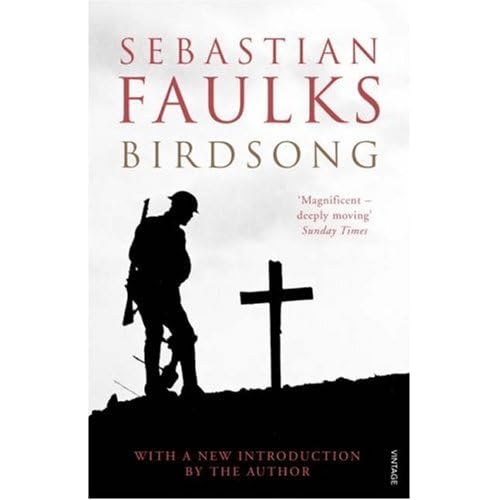I really should have read this years ago. I wish I could have talked to my Grandad about it. I remember that it made a powerful impression on him.
Firstly, it's beautifully written. The detail is so evocative. I'm always fascinated by historical novelists who can truly bring a period that they didn't live through themselves to life for a reader who is also from another time. The trenches in this novel feel real. More importantly, the characters feel real. They are emotionally complex, placed in extreme situations, and yet Faulks has exactly the right kind of light touch required to infuse them with a humanity that makes you ache for what they have to endure. For me this is what makes it so successful. They are not heroes, or stereotypes of any kind, in fact. They are just people, with a full and recognisable range of personality types, pushed in various ways to and beyond the limits of what humans ever expect to live through. Understanding this truly brings home the trauma of WW1, the full extent of the sacrifice, the true pity of a wasted generation of sons and husbands swallowed by the mud or - to no lesser extent in some cases - by the cost of surviving.
At the same time, Faulks balances the destruction, mind-numbing banality and horror of war with a story about life at its most vital, which bookends and interweaves the war sections. By beginning with the story of Wraysford's affair before the war, we are reminded that he is a young man first, soldier second - again, undermining 2D generalisations of what the names on the monuments represent. Throughout the novel, the sense of potential rebirth, of some seed or shoot surviving is ever present. It's delicately done - always small things, never suggesting easy remedies, never undermining the vulnerability and fragility of the lives that were placed so casually before the mechanised slaughter - but ultimately we are left with a sense of healing and continuation that feels more honest and respectful than a straight war novel might have been.
I wonder what my Grandad would have said about it.

No comments:
Post a Comment